Maintaining marble countertops requires a combination of regular cleaning, sealing, and proper care to preserve their beauty and durability over time. Here are some essential tips and guidelines for effectively maintaining marble countertops:
Daily Cleaning: Wipe down marble countertops regularly with a soft cloth or sponge and a mild soap and water solution to remove surface dirt, spills, and food residues. Avoid using harsh abrasive cleaners or acidic substances, as they can etch or dull the surface of the marble.
Avoiding Stains: Marble is susceptible to staining from liquids such as wine, coffee, and citrus juices. Promptly wipe up spills and stains with a damp cloth to prevent them from seeping into the porous surface of the marble. For stubborn stains, use a poultice made from baking soda and water or a specialized marble cleaner recommended by the manufacturer.
Sealing: Sealing marble countertops helps protect against stains and moisture penetration, prolonging the lifespan of the stone. Apply a high-quality marble sealer according to the manufacturer’s instructions, and reapply as needed to maintain optimal protection. Regular sealing helps keep the surface of the marble smooth and resistant to stains.
Avoiding Scratches: While marble is relatively soft compared to other countertop materials such as granite, it can still be scratched by abrasive materials or sharp objects. Use cutting boards and trivets to protect the surface of the marble from scratches caused by knives, utensils, and hot pots and pans.
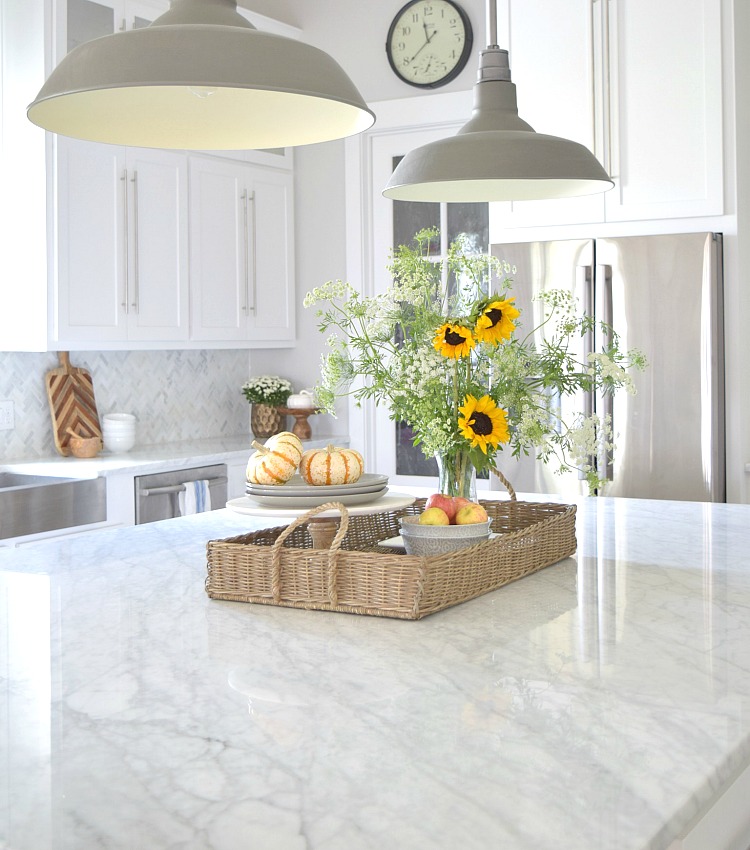
Preventing Etching: Marble is also susceptible to etching, which occurs when acidic substances such as vinegar, lemon juice, or tomato sauce come into contact with the surface of the stone. To prevent etching, avoid placing acidic foods directly on the marble countertop, and promptly wipe up any spills or splatters to minimize exposure.
Regular Maintenance: In addition to daily cleaning and sealing, marble countertops benefit from regular maintenance to keep them looking their best. Periodically polish the surface of the marble with a marble-specific polish to restore its natural luster and shine. Be sure to follow the manufacturer’s recommendations for proper application and usage.
Avoiding Heat Damage: While marble is heat-resistant, it is still susceptible to thermal shock from extreme temperature changes. Use trivets or hot pads to protect the surface of the marble from direct contact with hot pots, pans, and dishes to prevent damage and discoloration.

Proper Handling: When moving heavy objects or appliances on or near marble countertops, use caution to avoid chipping or cracking the stone. Lift objects rather than dragging them across the surface, and consider placing protective pads or mats underneath heavy items to prevent damage to the marble.
Regular Inspection: Periodically inspect marble countertops for signs of wear, damage, or deterioration. Look for any cracks, chips, or stains that may require professional repair or maintenance. Addressing issues promptly helps prevent them from worsening and extends the lifespan of the marble.
Professional Restoration: If marble countertops become dull, scratched, or stained over time, consider hiring a professional stone restoration specialist to restore them to their original beauty. Professional restoration techniques such as honing, polishing, and sealing can rejuvenate the appearance of marble countertops and repair any damage or imperfections.
Preventing Water Damage: Marble is porous and can absorb water if not properly sealed, leading to damage such as staining, discoloration, and deterioration. Be sure to regularly check the sealant on marble countertops and reapply it as needed to maintain optimal protection against water damage.
Avoiding Harsh Cleaners: Harsh cleaners containing ammonia, bleach, or abrasive substances can damage the surface of marble countertops and should be avoided. Instead, use gentle, non-abrasive cleaners specifically formulated for use on marble surfaces to safely remove dirt, grime, and stains without causing harm.
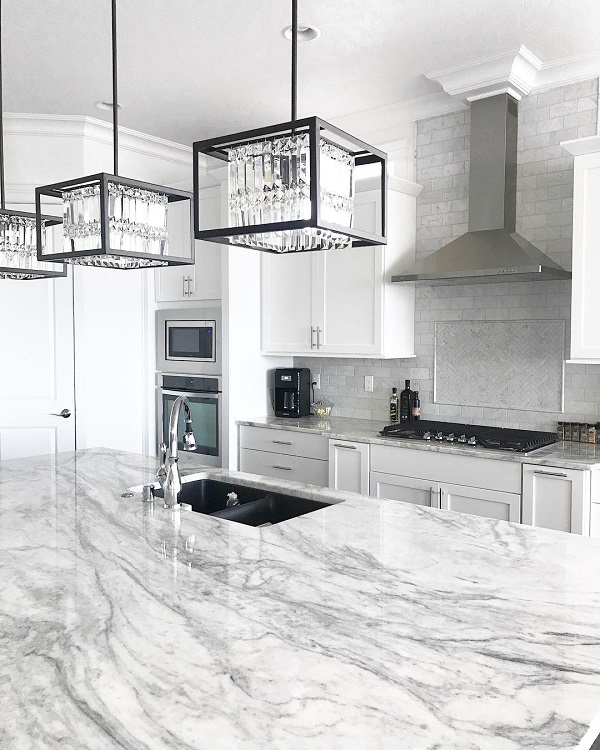
Routine Inspections: Regularly inspect marble countertops for any signs of damage, such as cracks, chips, or stains. Addressing these issues promptly can prevent them from worsening and ensure the long-term beauty and durability of the marble.
Preventing Scratches: To prevent scratches on marble countertops, avoid dragging heavy objects or abrasive materials across the surface. Use cutting boards, trivets, and coasters to protect the marble from scratches caused by knives, utensils, and hot pots and pans.
Consulting Professionals: If you’re unsure about how to properly maintain or repair your marble countertops, consider consulting with a professional stone care specialist or countertop installer. They can provide expert advice and guidance on the best practices for caring for your specific type of marble and address any concerns or issues you may have.

How often should marble countertops be sealed?
Marble countertops should be sealed regularly, typically every 6 to 12 months, to maintain optimal protection against stains and moisture penetration. However, the frequency of sealing may vary depending on factors such as the type of marble, the level of use, and the porosity of the stone.
Can I use vinegar to clean marble countertops?
No, vinegar should not be used to clean marble countertops, as it is acidic and can cause etching and damage to the surface of the stone. Instead, use a mild soap and water solution or a marble-specific cleaner recommended by the manufacturer to safely remove dirt, grime, and stains from marble countertops.
How can I remove stains from marble countertops?
To remove stains from marble countertops, create a poultice using baking soda and water and apply it to the stained area. Cover the poultice with plastic wrap and allow it to sit overnight to draw out the stain. Rinse the area with water and gently scrub with a soft cloth or sponge to remove any remaining residue.
Are marble countertops prone to cracking or chipping?
While marble is relatively soft compared to other countertop materials, it is still susceptible to cracking or chipping if subjected to excessive force or impact. To prevent damage, avoid dropping heavy objects or banging utensils against the surface of marble countertops, and use caution when moving appliances or furniture nearby.
Can I repair scratches on marble countertops myself?
Minor scratches on marble countertops can often be repaired using fine-grit sandpaper or a marble polishing compound. However, deep scratches or gouges may require professional repair by a stone restoration specialist to properly restore the surface of the marble. It’s best to consult with a professional for advice on the best course of action for repairing scratches on marble countertops.
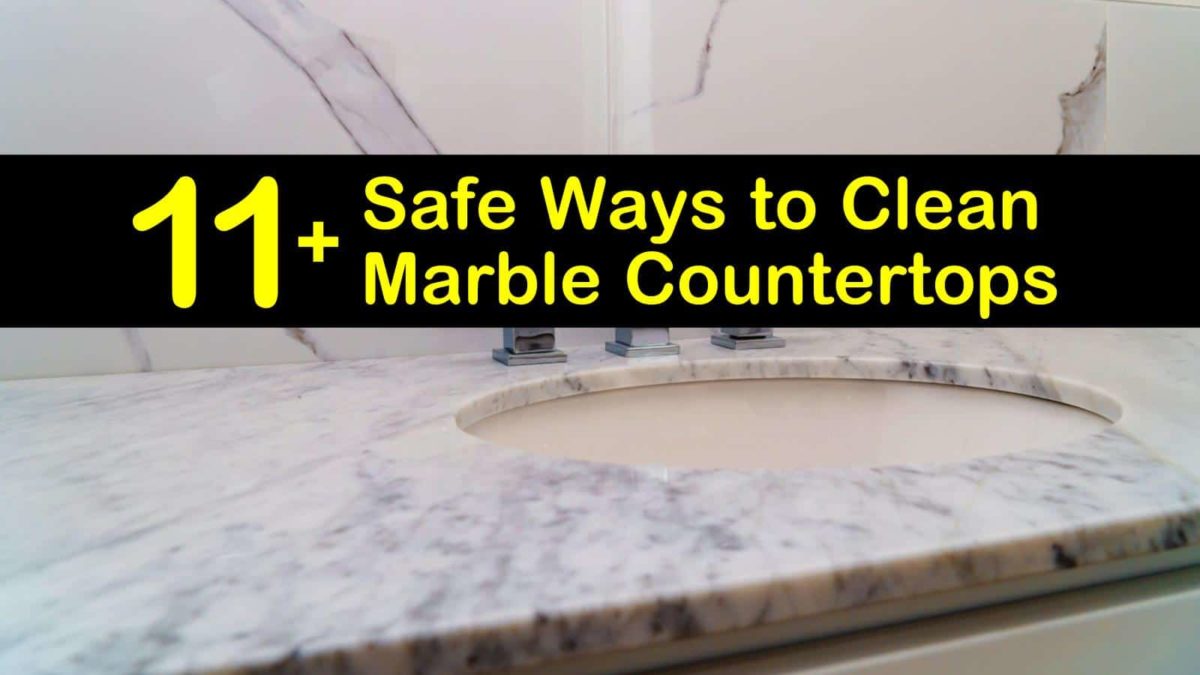
How to Clean Marble Countertops DIY?
Cleaning marble countertops DIY can be done effectively with the following steps:
- Gather Supplies: Collect the necessary cleaning supplies, including a soft cloth or sponge, mild dish soap, warm water, a spray bottle, and a marble-specific cleaner (optional).
- Prepare Cleaning Solution: Fill a spray bottle with warm water and add a small amount of mild dish soap. Alternatively, you can use a marble-specific cleaner diluted according to the manufacturer’s instructions.
- Wipe Down Countertops: Use a soft cloth or sponge dampened with the cleaning solution to wipe down the marble countertops, removing any surface dirt, spills, or food residues. Be gentle to avoid scratching or damaging the surface of the marble.
- Spot Treat Stains: For stubborn stains or spills, apply a small amount of the cleaning solution directly to the affected area and allow it to sit for a few minutes to loosen the stain. Use a soft cloth or sponge to gently scrub the area, then wipe it clean with a damp cloth.
- Rinse Thoroughly: After cleaning, rinse the marble countertops thoroughly with clean water to remove any soap residue or cleaning solution. Use a separate cloth or sponge dampened with water to wipe down the countertops and ensure all traces of cleaning products are removed.
- Dry Completely: Use a clean, dry cloth or towel to thoroughly dry the marble countertops after cleaning. This helps prevent water spots or streaks from forming and keeps the surface looking clean and shiny.
- Buff for Shine (Optional): For added shine, you can buff the marble countertops with a soft, dry cloth or a microfiber cloth after they are completely dry. Gently buff the surface in circular motions to enhance the natural luster of the marble.
- Apply Marble Sealer (As Needed): If your marble countertops are due for resealing, apply a high-quality marble sealer according to the manufacturer’s instructions after cleaning and drying the surface. This helps protect the marble from stains and moisture penetration.
- Regular Maintenance: To keep marble countertops looking their best, perform regular maintenance such as wiping down spills promptly, using coasters and trivets to protect the surface from heat and moisture, and avoiding harsh or abrasive cleaners that can damage the marble.

How to clean marble countertops? Easiest way Stone Wizards

Pros and Cons of Marble Countertops – Case Against Marble Counters
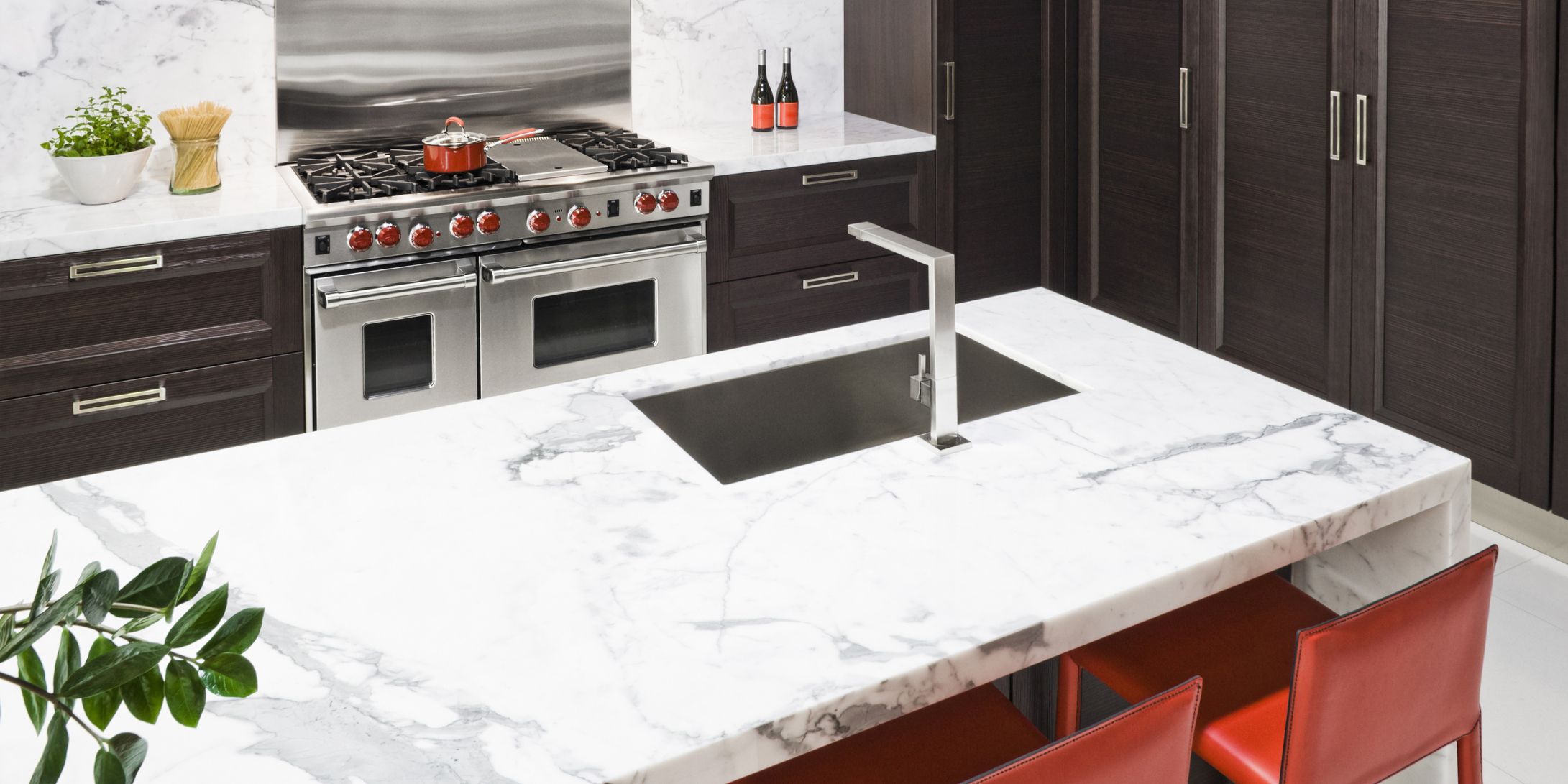
How we decided on marble countertops and how to care for them

Remodeling 101: How to Care for Marble Countertops – Remodelista
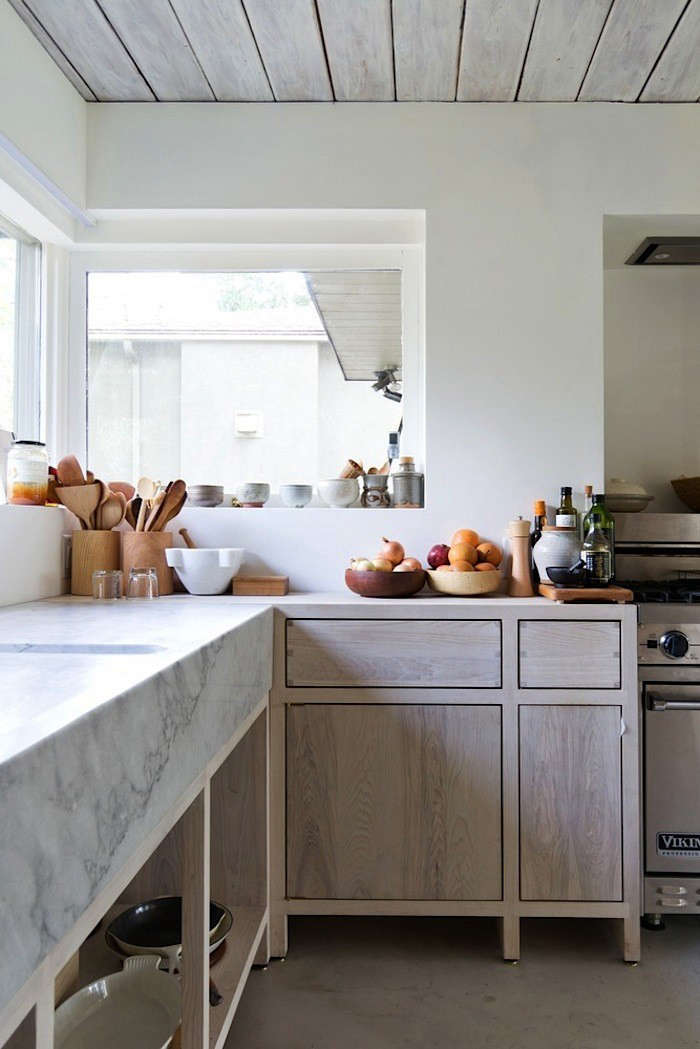
Related articles:
- DIY Marble Countertop Paint
- Marble Kitchen Countertops Backsplash Ideas
- How To Polish Marble Countertops
- DIY White Marble Countertops
- Marble Countertop Design Ideas
- Marble Countertops With Wood Cabinets
- Marble Countertops With Dark Cabinets
- Restore Cultured Marble Countertop
- Marble Countertop Stain Removal
- Installing Marble Countertops In Bathroom